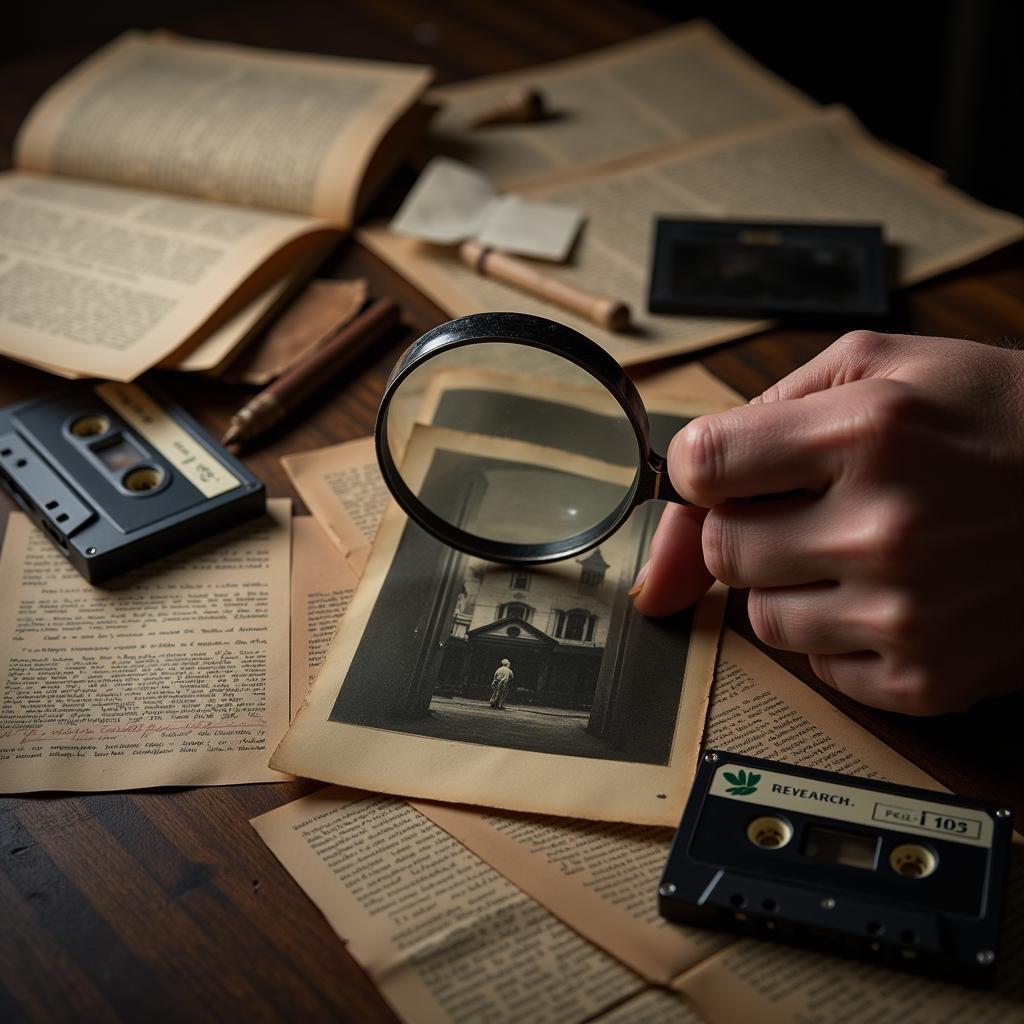Desk research is a crucial first step in any research project, whether you’re investigating paranormal occurrences or exploring more mundane topics. It involves systematically gathering and analyzing existing information from various sources to answer research questions or solve problems. In essence, it’s about laying a solid foundation of knowledge before venturing into the field.
Diving Deep into Existing Data
Desk research goes beyond a quick Google search. It requires a structured approach to ensure you’re gathering relevant and reliable information. Here’s what desk research typically involves:
1. Defining Your Research Objectives
Before you start digging, you need to know what you’re looking for. Clearly define your research questions and objectives. For instance, if you’re studying a haunted house, your objectives might be to uncover its history, previous occupants, and reported paranormal activity.
2. Identifying Relevant Sources
Desk research draws upon a vast pool of information, including:
- Books and Journals: Academic databases, libraries, and online bookstores are treasure troves of in-depth information on a wide range of subjects, including paranormal phenomena.
- Websites and Online Publications: Reputable websites of paranormal research organizations, news outlets, and government archives can provide valuable data.
- Official Documents and Records: Historical societies, local archives, and government agencies often hold documents like property deeds, census data, and police reports that can shed light on your research subject.
3. Data Collection and Analysis
Once you’ve identified your sources, it’s time to gather and analyze the information. This involves:
- Reading and Note-taking: Carefully examine the collected materials, highlighting key facts, figures, and relevant details. Summarize your findings in a clear and concise manner.
- Cross-referencing Information: Verify the accuracy of the information by comparing data from different sources. Look for corroborating evidence or discrepancies that need further investigation.
 Analyzing Paranormal Evidence During Desk Research
Analyzing Paranormal Evidence During Desk Research
4. Synthesizing Findings
The final step involves putting all the pieces together. Organize your research findings into a coherent narrative or report. This step helps you identify knowledge gaps and areas that require further exploration through field research or interviews.
Why is Desk Research Essential for Paranormal Investigations?
UCI research jobs often start with extensive desk research. Here’s why it’s crucial:
- Building a Solid Foundation: Desk research provides the historical context, background information, and potential leads that are essential for conducting effective paranormal investigations.
- Understanding the Phenomena: By researching past cases, theories, and scientific explanations, you can develop a deeper understanding of the paranormal phenomena you’re investigating.
- Developing Research Methodologies: Desk research helps you identify best practices, data collection techniques, and potential pitfalls to consider before venturing into the field.
Desk Research: The Springboard for Paranormal Exploration
While fieldwork might seem more exciting, desk research is the crucial first step. It equips you with the knowledge, context, and direction needed to conduct meaningful and insightful Paranormal Research.
History research assistant jobs often require a strong understanding of desk research methodologies, showcasing its importance in unraveling historical mysteries. By thoroughly exploring existing information, you lay the groundwork for a successful investigation, increasing your chances of uncovering the truth behind unexplained occurrences.
FAQ
1. What is the difference between desk research and field research?
Desk research focuses on gathering existing information from secondary sources like books, websites, and documents. In contrast, field research involves collecting primary data directly from the source through observations, experiments, or interviews.
2. Is desk research only useful for academic research?
No, desk research is valuable for various purposes, including market research, business planning, personal projects, and paranormal investigations.
3. How long should I spend on desk research?
The time required depends on the scope and complexity of your research. However, allocating sufficient time for thorough desk research is crucial before moving on to other stages of your project.
4. How can I ensure the information I find is reliable?
Stick to reputable sources like academic journals, government websites, and established organizations. Cross-reference information from multiple sources to verify its accuracy and always evaluate the credibility of your sources.
5. What are some tools that can help me with desk research?
Several tools can streamline your research process, including:
- Reference Management Software: Zotero, Mendeley
- Note-Taking Apps: Evernote, OneNote
- Concept Mapping Tools: XMind, Coggle
Need Help with Your Paranormal Research?
Contact us today!
Phone: 0904826292
Email: research@gmail.com
Address: No. 31, Alley 142/7, P. Phú Viên, Bồ Đề, Long Biên, Hà Nội, Việt Nam.
We have a 24/7 customer support team ready to assist you.